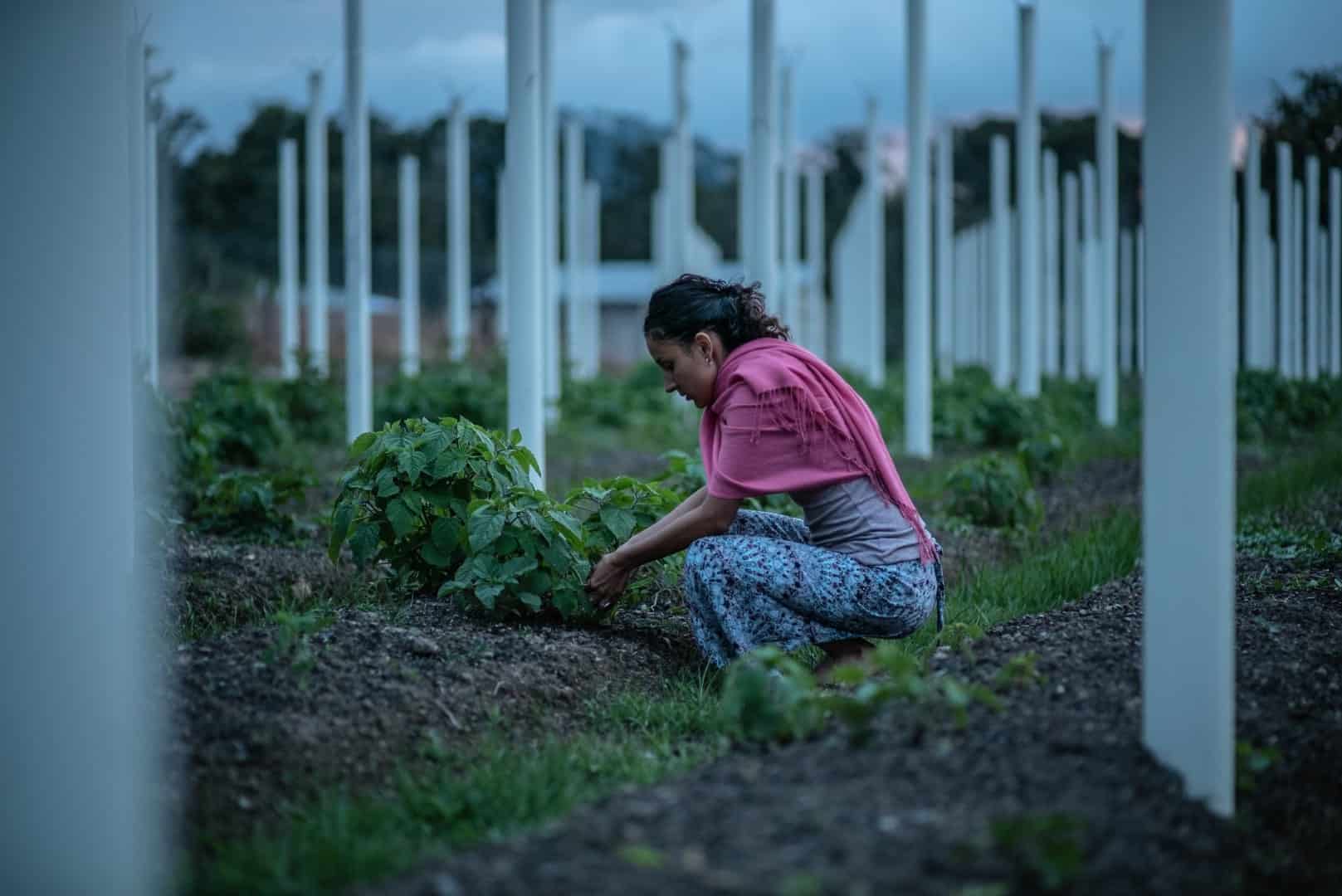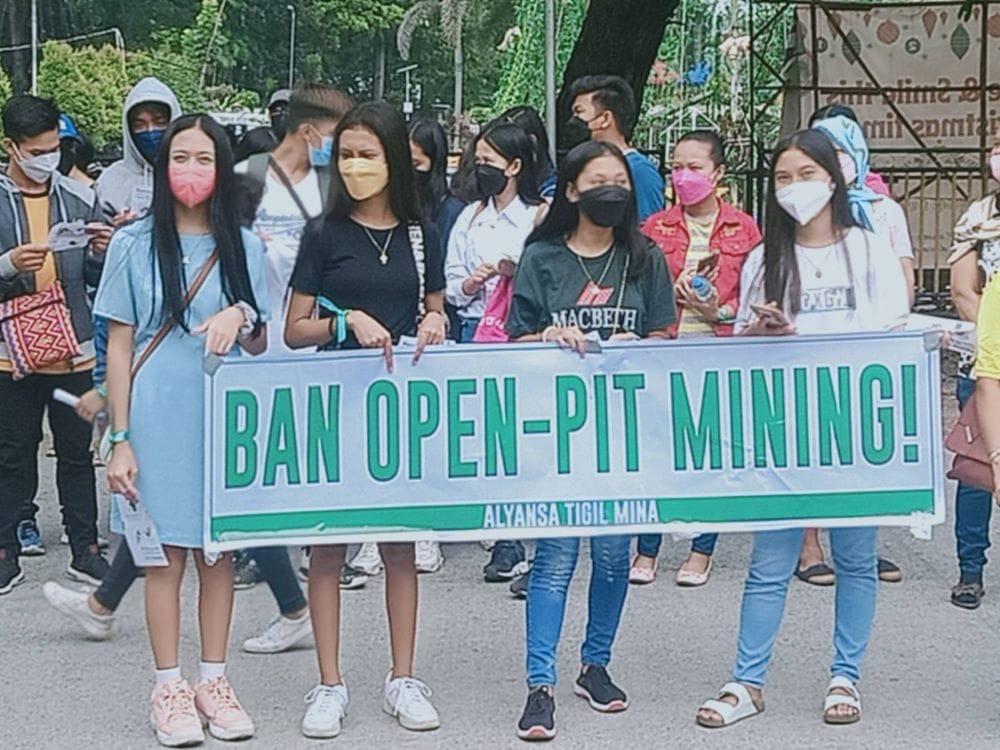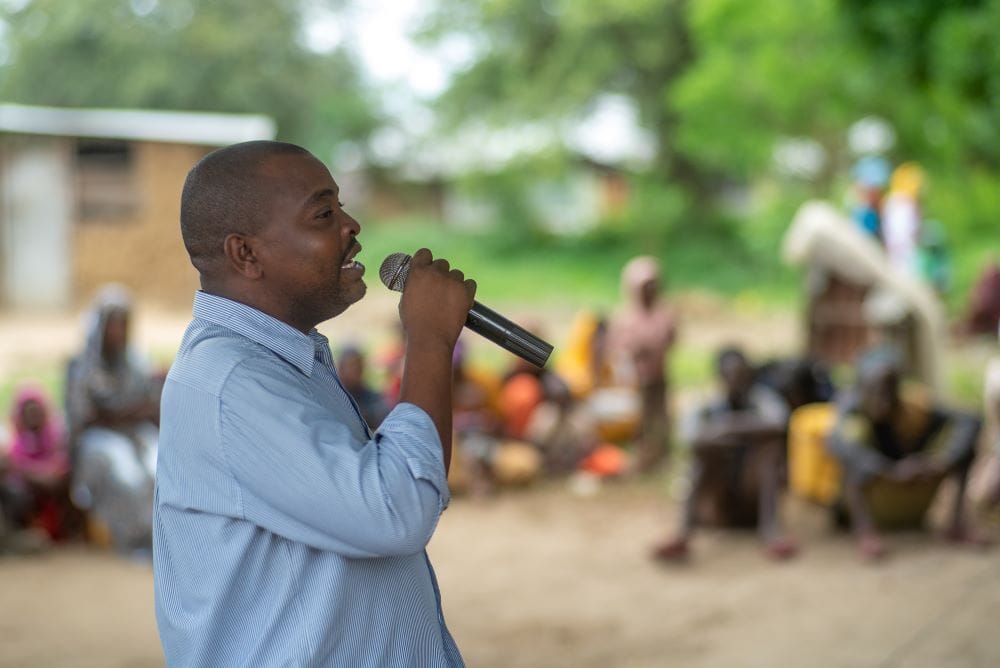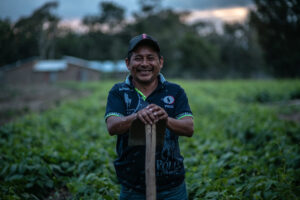To take climate action that really matters, we need to stand up for the people experiencing the devastating effects of pollution, unsafe water, and stolen land. See how the Fund’s support is advancing true climate justice.

Climate justice and human rights go hand in hand. That’s why the Fund works to stop climate change not only by supporting environmental activism, but also by promoting social and economic equality, free societies, and safety for all who speak truth to power.
Climate Justice Means Promoting People’s Social, Health, and Economic Rights

The people most affected by climate change are some of the world’s poorest and most oppressed. Just raising awareness of their struggles isn’t enough to create meaningful change. That’s why we invest in activists who connect their social and economic power with key climate struggles to build a more sustainable and equitable future.
In the Philippines, a group of six volunteers coordinate efforts by the Convergence of Initiatives for Environmental Justice (CIEJ) to stand up to powerful companies who want to bring open-pit mining to South Cotabato, one of the country’s key agricultural regions. This type of mining would destroy farms, pollute the area, and threaten food security and clean water for the 975,000 people who live there. It would also have devastating economic effects on communities who have historically faced marginalization, overdevelopment, and land grabs.
To fight back, CIEJ is mobilizing Indigenous peoples and farming communities to protest, collect and publicize data on the destructive impacts of mining, and take decisive legal action. They garnered support from local communities to exert pressure on local officials to keep the ban. And they partnered with another Fund grantee, the Legal Rights and Natural Resources Center, to win a case upholding a ban on small-scale projects. And with our support, they continue to push back on large-scale mining operations.
Protecting the Planet Means Protecting Freedom of Expression and Assembly

According to Freedom House, democracy and freedom of expression have been on the decline for nearly two decades. By pushing back on authoritarianism and protecting the right to dissent and disagree with people in power, activists are making it possible to hold those who destroy the environment to account.
The island of Lamu, off Kenya’s coast, is home to a unique ecosystem and cultural heritage, as well as many farming communities. Its pristine beaches, mangrove forests, and rich land also make it a target for development projects—such as a port, oil pipeline, and coal plant—that would destroy the area’s biodiversity along with the traditions and livelihoods of many residents. Meanwhile, local communities are unlikely to enjoy any profits from the invasive projects.
In response, local activists formed the Save Lamu campaign, mobilizing communities to push back against the intrusive infrastructure. While the right to protest is enshrined in Kenyan law, limits on freedom of assembly, government surveillance, and intimidation by security forces have made activism increasingly difficult. The Fund supports networks in Kenya that unite activists who, though they work on different issues, share common cause in protecting freedoms and civic space. When two Save Lamu protesters were unjustly arrested in 2018, their fellow activists mobilized, following the case all the way to Nairobi and securing their release.
Taking Climate Action Means Keeping Environmental Activists Safe
![[COPINH] Bertita_web Bertita Zuniga stands in front of a poster of her mother, an, assassinated activist.](https://globalhumanrights.org/wp-content/uploads/2023/04/COPINH-Bertita_web.jpg)
In 2022, nearly half of activists killed worldwide were land, environmental, or Indigenous peoples’ defenders, according to Front Line Defenders. Protecting climate activists must be a critical priority for human rights funders.
Honduras has consistently been ranked one of the most dangerous countries for environmental activists. The highest profile case was the murder of Berta Cáceres, co-founder of Fund grantee Consejo Cívico de Organizaciones Indígenas Populares (the Civic Council of Popular and Indigenous Organizations of Honduras, or COPINH). This group of Indigenous activists courageously pushed back against a hydroelectric dam that threatened their livelihoods and the environment. As their advocacy gained traction, they began receiving threats. In 2016, Berta was assassinated outside her home.
The Fund’s continued support allowed COPINH, now led by Berta’s daughter Bertha Zúñiga, to pursue justice for Berta’s murder—making sure her case stayed in the public eye, accessing legal counsel, and moving the trial forward despite harassment and the COVID-19 pandemic. To date, eight men have been convicted and sentenced for her murder, including a corporate executive who was tried as a co-conspirator—a watershed moment for her family and the environmental justice movement in Latin America.
Sign up to our newsletter
Add some impact to your inbox.
By submitting this form, you accept that your data will be stored and processed in line with our Privacy Policy.



